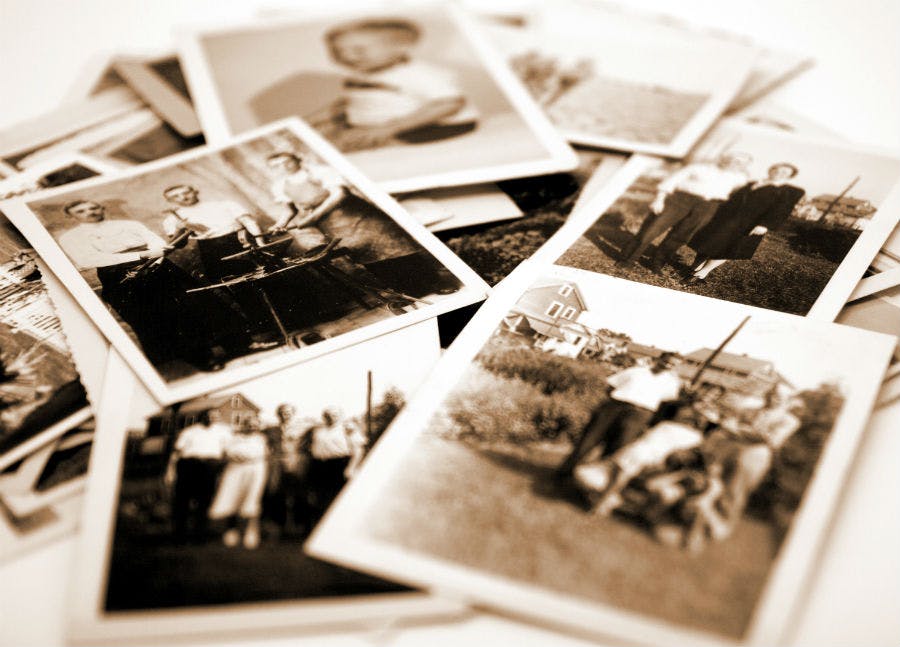Could cloud storage save your life? This might seem like a bold claim but there's some truth to this wild statement. Did you know that, in the event of a house fire, 46% of people said that they would most likely try to save their personal family photographs? It seems that such meaningful memories can incite us to run into burning buildings.
It's an understandable response. Family photos, particularly those from years ago are valuable beyond measure. But in a house fire, they would almost certainly be irrevocably destroyed.
Although you might feel compelled to run into a burning house to grab your photos, you would be taking a massive risk. Fires are extremely dangerous and unpredictable. By attempting to salvage your photographs or other priceless memories you're putting your life on the line.
What is there was a way to make sure that your most treasured family photos could be saved no matter what might happen to your home?
Enter cloud storage.
If the unthinkable were to occur, such as a fire, flood, or other natural disaster, you would be devastated, but you could at least have peace of mind that these items of enormous personal value remained safe. This is achieved through cloud storage. While your physical photos might not make it out intact, cloud storage ensures that a digital copy of each photo remains.
With cloud storage, you know there's no need to put your life in danger in order to save your pictures. So, it’s true: the security of cloud store storage might just save your life.
Want to learn more? Read on.

Where does your data will live?
What is Cloud Storage?
Many people might be hesitant to use cloud storage namely because the concept of it is a little, well...nebulous, if not downright baffling. We all understand that our computers and other digital devices have internal storage, in other words, we can store pictures, documents, and other files on their hard drives, but the cloud works differently. And in fact, storage such as on your laptop, a thumb drive, or even an external hard drive may not be enough to protect something as important as your family photos.
What if you have saved digital files of your family photos on your laptop, but your laptop Is tragically lost in the same fire? Or, you might be depending on your mobile phone to house your photos. This may be an even less secure approach because phones are more likely to be lost, stolen, or broken. With any hardware, there's always the possibility that it could not function for what seems to be no reason. If it's irreplaceable family photos on the line, you definitely need a backup system.
Here’s how the cloud works. Cloud storage is physical storage for your files such as photos but it's not in a tangible place we can visit. Instead, those files are stored on the cloud, an online space. This is a space outside of your personal devices or your network and it involves the work of multiple remote servers which are located within gigantic data centres built on virtualization technology. Cloud storage space typically spans across numerous servers and potentially even numerous locations.
All that sounds confusing, we get it. it's hard to envision a virtual space that could hold enormous amounts of photos or other important data. But the cloud works, it's reliable, and millions of people are already using cloud storage around the world.

The cloud could help protect your most precious of memories
The primary reason that cloud storage is so powerful is that it isn't tied to any physical location. While your printed photographs could be burned or physically lost, the cloud remains separate from physical constraints. This also means that you can access your files from anywhere that you have an Internet connection. In the event that you experienced a tragic event such as a house fire, you'd be able to connect to the cloud from any Internet-enabled device and find your beloved images.
It's sad to know that the original physical copies would be lost, but if your family photos have been scanned and saved in the cloud, you could arrange to have them reprinted and reframed once again. That makes cloud storage the absolute best option to store your family photos.
Cloud Storage Doesn’t Have to Be Complicated
There are many providers who offer cloud storage to clients. One that you may be more familiar with is Google Drive. Google Drive is easy to use and free to access up to a certain amount of storage. If you require more space, you’ll have to pay, but the rates are quite reasonable.
A common concern that we’ve heard before is this: What happens if Google crashes? or Won't everything be lost if Google goes down?
Fortunately this occurrence is virtually impossible, with Google and any other cloud storage provider.
Google stores users’ data by distributing it across several data centres and locations. They do this not just with users’ data but with their own data as well. This means that if one Google data centre were to go down there are still countless others which are safely containing all the data. In the words of a Google representative, “We then chunk and replicate the data over multiple systems to avoid a single point of failure." Because it’s not isolated in one place, there’s no way that your data in the cloud could ever be lost. And cloud storage is continually backed up, again and again, making it even more secure.
Writer Gideon Hodge ran into his burning home to retrieve a laptop containing a novel that wasn't backed up.
Other cloud storage services use the same approach as Google, and there are hundreds of them online to choose from. As you consider utilising cloud storage for your photos, you should first look into digitising those images. You could potentially scan each photograph individually with an at-home scanner, but most of us have hundreds if not thousands of physical photographs that need digitising. Browse the web and you're sure to find a range of companies that will do this for you at a reasonable rate.
Photos are an important part of the documentation of our personal and family history. We owe it to future generations to back up our photos. The cloud can help.